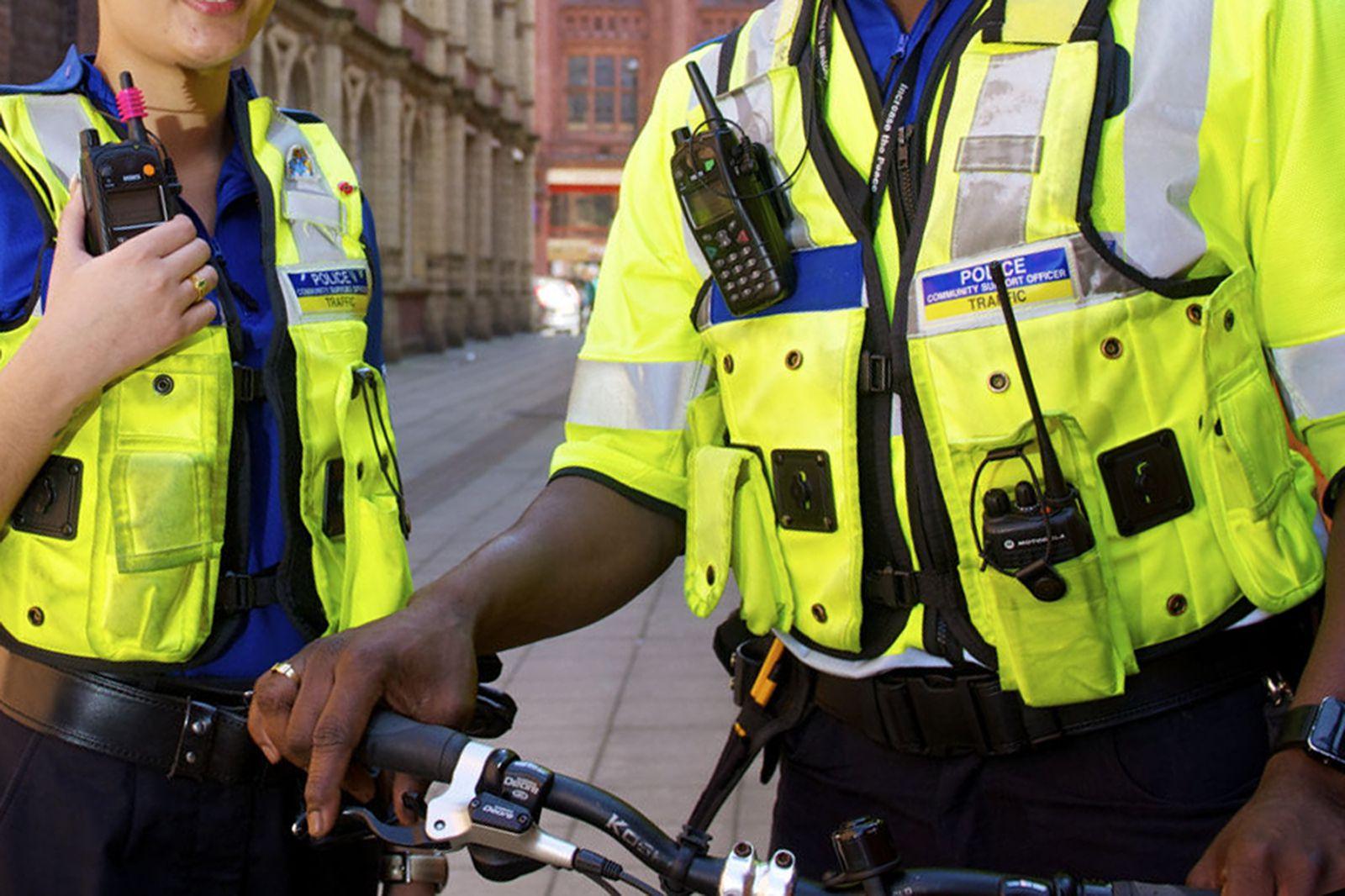Following the grand jury decision to not indict Officer Darren Wilson for the shooting death of Michael Brown in Ferguson, Missouri, U.S. President Barack Obama urged police forces Monday to wear body cameras. But Boston Mayor Martin Walsh is not quite ready to jump on board.
At a Monday meeting with mayors, police chiefs and civil rights activists, Obama asked Congress for $75 million to fund 50,000 body cameras for police nationwide.
Shortly after the August incident, a petition on whitehouse.gov proposed a “Michael Brown Law,” that would require all police officers to have cameras attached to their uniforms, monitoring and recording every move they make. The petition earned nearly 155,000 signatures and support for the motion has amplified in light of the Nov. 24 grand jury decision.
Other cities including New York, Washington, Chicago and Los Angeles have already adopted body cams for their police forces. But after Obama’s meeting, Walsh decided that police body cameras may not be right for Boston, telling The Boston Globe that they “aren’t going to help with the fundamental problems between community and police.”
“I’m not going to be distracted by having a conversation about whether or not police have body cameras,” Walsh said. “We have to have a lot more discussion around race and racial issues… It’s not one that people want to have and people would rather forget about, but we’re not going to forget about it in Boston. I made a commitment to have that conversation, and we’re going to have it.”
While Walsh seems to want to postpone this “conversation,” Ned Merrick, former Plainville police chief and former president of the state chiefs of police association told the Globe that there were merits to outfitting police uniforms with body cams.
“From a management point of view, it makes all the sense in the world,” he said, but he also noted that there has been some resistance due to the “Big Brother” aspect – nobody wants to be watched all the time.
Police chiefs who support body-cam technology, such as Merrick, have said that both police officers and citizens behave better while being recorded. Complaints against officers have declined, with video evidence often supporting the officers’ side of the story.
Probably the most controversial opposition comes from Missouri Rep. Jeff Roorda, who is also business manager for the St. Louis Police Officers’ Association and vice president of a police union charity that provides support for Officer Wilson. Roorda told the Los Angeles Times that officers’ experiences with body cams have made them weary of the benefits.
“Instead of the cameras being there to protect the officers, they get disciplined for petty stuff constantly — for violating the uniform code, or rolling through a stop sign for an urgent call, or for not turning the camera on,” Roorda said. “That’s one of the hottest issues for my guys. They’re tired of the nitpicking, and that’s what the cameras have been used to do.”
While the arguments for and against body cameras are endless, in this case, we are looking at the events in Ferguson, where one of the biggest issues (and most notable reasons why Officer Wilson did not receive an indictment) was that many of the witnesses were giving conflicting recollections and changing their stories. On the most superficial level, if Wilson had been wearing a camera on his shirt, there would be an infallible record of what actually happened.
But putting a Band-Aid on the issue of race-based police brutality isn’t going to change anything. The bigger issue at hand here is racial profiling and violence against minorities, not a technical glitch. Walsh’s statement that we should “have a conversation” may be vague and eventual, but in a sense, body cams are the “easy” solution. It may stop the dialogue that Walsh supposedly wants to start because we feel that we have a solution, even though the issues run deeper than slapping a camera on a police officer’s t-shirt.
Furthermore, being a fairly liberal, young and affluent city, Boston residents tend to have the mentality that situations like the Brown shooting wouldn’t happen here. Perhaps that is where Walsh’s opposition is coming from. But on the other hand, as a prominent and influential city that is usually on the cutting edge of policy, why aren’t we taking the initiative and setting an example? Even if Boston in particular is not having this problem, we can show that the implementation of body cams for police is something that’s possible and even helpful. The Boston Police Department has funds that less privileged areas likely do not have, and this city could be instrumental in working out the kinks in this program before the proposed Michael Brown Law is passed.
Yes, it may be an invasion of privacy, but it’s not as if these videos are going to end up on YouTube. The issue of race-based police brutality is not going away, and it couldn’t hurt to have body cams. Police are public employees who enforce our laws and are directly responsible for our safety. And they, like everyone else, should be held accountable for their actions.





















































































































